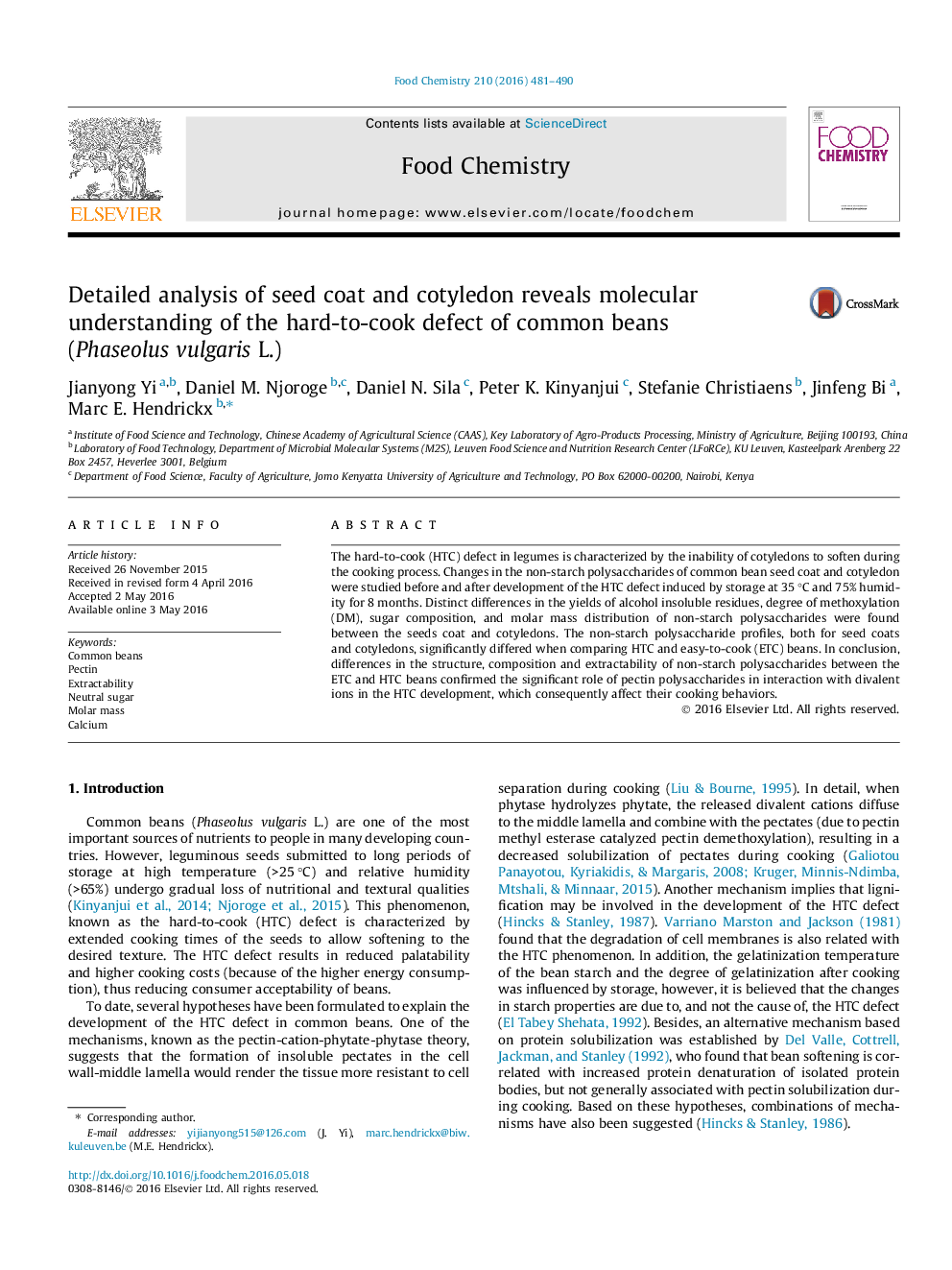| Article ID | Journal | Published Year | Pages | File Type |
|---|---|---|---|---|
| 7588407 | Food Chemistry | 2016 | 10 Pages |
Abstract
The hard-to-cook (HTC) defect in legumes is characterized by the inability of cotyledons to soften during the cooking process. Changes in the non-starch polysaccharides of common bean seed coat and cotyledon were studied before and after development of the HTC defect induced by storage at 35 °C and 75% humidity for 8 months. Distinct differences in the yields of alcohol insoluble residues, degree of methoxylation (DM), sugar composition, and molar mass distribution of non-starch polysaccharides were found between the seeds coat and cotyledons. The non-starch polysaccharide profiles, both for seed coats and cotyledons, significantly differed when comparing HTC and easy-to-cook (ETC) beans. In conclusion, differences in the structure, composition and extractability of non-starch polysaccharides between the ETC and HTC beans confirmed the significant role of pectin polysaccharides in interaction with divalent ions in the HTC development, which consequently affect their cooking behaviors.
Related Topics
Physical Sciences and Engineering
Chemistry
Analytical Chemistry
Authors
Jianyong Yi, Daniel M. Njoroge, Daniel N. Sila, Peter K. Kinyanjui, Stefanie Christiaens, Jinfeng Bi, Marc E. Hendrickx,
